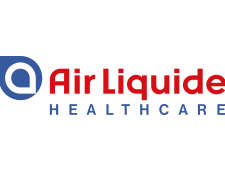NETCARE: Person-Centred Care with a Sustainable Heart
Throughout South Africa, Netcare’s unique and comprehensive range of private healthcare services and products cover the full spectrum of healthcare. As the company continues to rack up milestones and recognition in its provision of the best and safest care, the sustainability firmly at the heart of Netcare is embodied by its pioneering Alberton Hospital, scheduled to open in April this year.
“Our promise is to provide you with the best and safest care, centred around your unique needs and circumstances,” opens Netcare, South Africa’s leading provider of private healthcare. “We care about the dignity of our patients and all members of the Netcare family, and engage everyone with empathy and respond with acts of compassion in all interactions with our patients and their families.”
Established in 1996 and listed on the JSE in the same year, Netcare operates the largest private hospital, primary healthcare, emergency medical services and renal care networks in South Africa. Today this translates to a suite of 57 owned and managed hospitals, including four public private partnership (PPP) hospitals in South Africa, as well as one PPP hospital in Lesotho.
In South Africa 9,996 registered beds are available joined by 425 beds in its Lesotho facility, totalling well in excess of 10,000 places. “It is our privilege,” Netcare states, “to care for patients from across South Africa, neighbouring countries and further afield in Africa who make use of the specialised treatments offered at Netcare hospitals.
“At Netcare, we are striving to change healthcare for the better.”
CUTTING-EDGE CARE
Netcare hospitals are well and truly at the forefront of private healthcare provision in South Africa, in large part thanks to longstanding and well-established partnership with specialists. Most recently these standards have been endorsed by the largest representative body for radiology worldwide – the American College of Radiology – in its granting full accreditation to Parklane Radiology, making it Africa’s first and only Breast Imaging Centre of Excellence (BICOE).
“We congratulate interventional and diagnostic radiologist, Dr Peter Schoub and the team at Parklane Radiology’s Women’s Wellness Centre on this landmark achievement for breast health on the continent,” effuses Netcare Managing Director Jacques du Plessis of this incredible achievement. The stringent requirements of the ACR process for accreditation encompass all breast imaging modalities, and to qualify, Parklane Radiology was required to demonstrate a high degree of proficiency in every one of these imaging types. This accomplished, all that was left to follow was the award of a full set of three-year ACR accreditations.
“Limited breast health diagnosis and treatment facilities on the continent unfortunately mean that for too many people, breast cancer is only detected once it is at a more advanced stage. This can make it harder, and often more resource intensive, to treat,” Dr Schoub relates. “Our recognition as a Breast Imaging Centre of Excellence could not have been achieved without the caring, hard work, dedication to our patients and initiative of every member of the Parklane Radiology team.
“We thank our many patients for inspiring us and will provide them with world-class quality service in the years ahead.”
While already viewed as bastions of the cutting-edge of care in the country, Netcare is ever-anxious to develop and implement solutions to further ameliorate the quality of its healthcare by inspiring its people, encouraging innovation and optimising operations. “We continue to invest in expanding our hospitals to meet the growing need for quality healthcare services,” Netcare details, “and in equipping our facilities with the latest available technology.
“This approach creates an environment where the specialists who practise at our hospitals are able to provide their patients with cutting-edge, life-saving treatments.”
The new, ultramodern Netcare Alberton Hospital, which will open to patients in April this year, could hardly better embody this approach. Construction recently completed, its main contractor Trencon Construction last month officially handed over the building to Netcare for the final phase of preparations.
“The handover represents a significant milestone in the development of our new future fit healthcare facility, and the culmination of a decade long journey of options analysis, planning and implementation of this new purpose-built hospital,” says Jacques du Plessis, Managing Director of Netcare’s hospital division of the new 427-bed facility developed by the Rejem-Linton-Netcare Joint Venture, a joint venture consisting of Netcare Properties, local businessman Riaan Jonker and Nedbank.
SUSTAINABLE EXCELLENCE
Power saving, water and waste recycling, integral building design elements and materials are amongst a raft of green initiatives forming part of the environmentally sustainable approach to healthcare at the Netcare Alberton Hospital, explicitly demonstrating the central focus on environmental sustainability at the heart of its design.
“Developing the large 427-bed hospital from scratch presented us with the ideal opportunity to lay a strong foundation for providing healthcare more sustainably, through reducing reliance on the national power grid and conserving and recycling water, among other environmentally-conscious design features,” says du Plessis.
Last year, Netcare became the first private healthcare organisation in Africa to commit to the Race to Zero 2050 challenge, pledging to support the UN’s goal of achieving net zero emissions by 2050. “Water is a finite resource and as a result of global warming and pollution the availability of quality potable water supplies in South Africa are becoming more and more constrained,” comments André Nortjé, national environmental sustainability manager at Netcare, as some projections suggest that South Africa’s demand for water could outstrip available water supply by 17% by 2030, based on projected population and economic growth.
“In the new hospital’s systems, we have therefore considered how this looming risk of water shortages could be mitigated,” Nortjé goes on, “and in line with Netcare’s 2030 sustainability strategy and our participation in the United Nations led international Race to Zero 2050 challenge, the Netcare Alberton Hospital will conserve water as far as possible through its own, on-site grey water treatment plant.”
In the quest for zero emissions at the new hospital, which will merge and expand the facilities and services of Netcare Clinton and Netcare Union, a full building management system (BMS) monitors water and power usage throughout the technologically-advanced, digitally-enabled hospital, to proactively foresee and prevent unnecessary wastage and optimise efficiency in daily operations.
It is equipped with a photovoltaic solar energy generating system that will contribute two gigawatt hours of electricity each year, equal to seven million energy efficient light bulbs.
“Environmental consciousness is a growing priority for people in their everyday lives,” du Plessis concludes. “The advanced design features, mechanical and building management systems at Netcare Alberton Hospital along with the Netcare Group’s sustainability targets demonstrate that healthcare organisations can, and should, make a key contribution to protecting the health of our environment for the benefit of individuals, communities and future generations.”


